Festivals - Son of the South : Let's talk with Lucas Till and Sharonne Lainer
By Mulder, Deauville, 18 september 2021
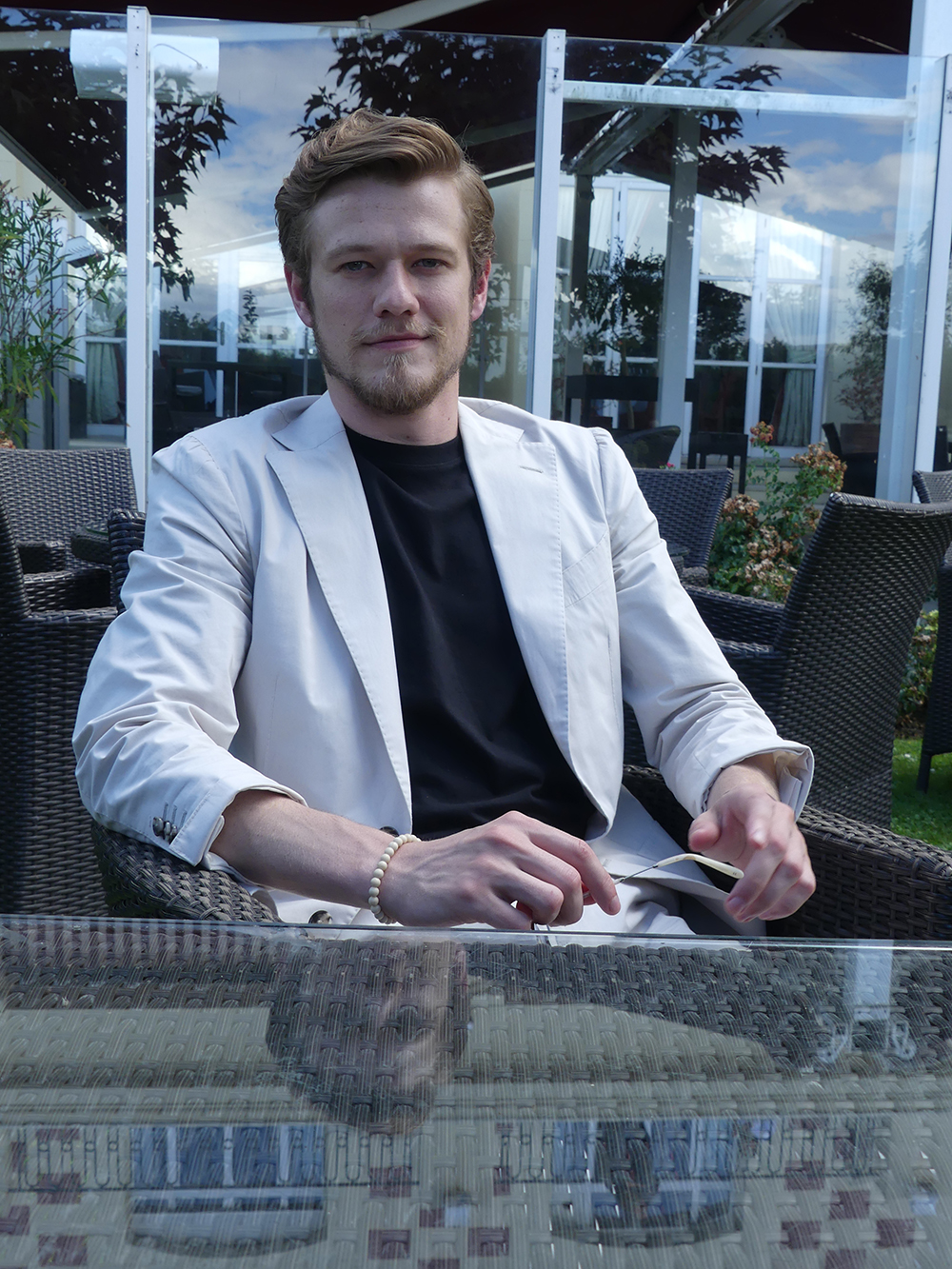
Son of the South is a 2020 American biographical historical drama film, written and directed by Barry Alexander Brown. Based on Bob Zellner's autobiography, The Wrong Side of Murder Creek: A White Southerner in the Freedom Movement, it stars Lucas Till, Lex Scott Davis, Lucy Hale, Jake Abel, Shamier Anderson, Julia Ormond, Cedric the Entertainer and Brian Dennehy in his final film role. Spike Lee serves as an executive producer. It had its world premiere at the American Black Film Festival on August 26, 2020. It was released on February 5, 2021, by Clear Horizon Entertainment and Vertical Entertainment.
During the Deauville American film festival, we had the opportunity to interview Lucas Till and Sharonne Lainer.
Q : hello Lucas After playing on some great movies as Walk the line (2005), Battle : Los Angeles (2011), X men first class (2011), X-Men: Days of Future Past (2014), X-Men: Apocalypse (2016) and series as MacGyver, son of the south is your new movie. How have you approached your character Bob Zellner ?
Lucas Till : well this one was this one was different because there was source material to reference there was a real man to play and a real book to read and that helped but i mean it was just because i could actually watch videos of him even older watching him tell stories is really the only research that i was able to do.
Q : hello Sharonne, After some movies as Summer of 67 and I still believe , this you new movie , how have you approached the Rosa parks role ?
Sharonne Lainer : so almost like what Lucas was saying there is a real person that you're portraying so in in my case MS Rosa Parks has already she already passed away so i had to go back in and pull like old footage and what i did well it's weird right because everybody learns about rosa parks at school so you know certain things right but once I started to dig i was like whoa there's so much that we just don't know for example a lot of people said that she didn't give up her seat that day on the bus because she was tired well that's not true when you read her autobiography she says i was not physically tired i was simply tired of giving in so anyway i went back and watched interviews you know read more things visited a museum so you definitely have to approach real historical characters in a different way you can't just make up anything you want to make up right.
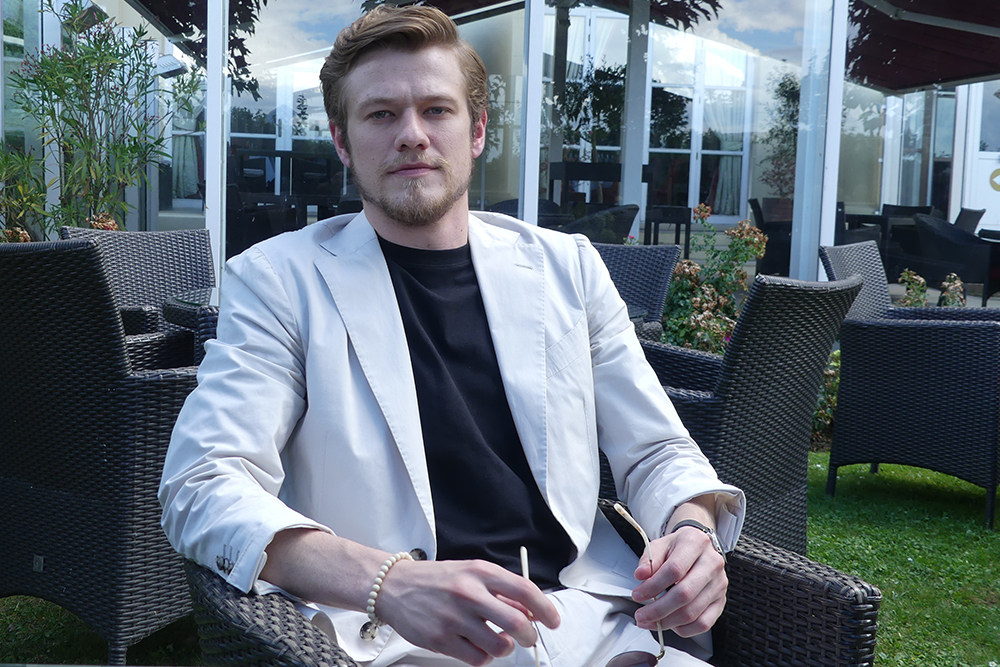
Q : In a few words, can you talk to about the story of your this film ?
Lucas Till : well this is center and not unlike Forrest Gump going through time and these critical moments and meeting these people throughout history and telling a story the difference is this isn't as well it's not fictional the story has been compressed a little bit so there's certain things that have been moved not made up but moved to fit the narrative but it's a story of a guy who is growing up in a family of clan members Ku Klux Klan members and decides to go the other way and only by witnessing the strength and the courage of other people going through these events does he slowly start to see why these things are happening and what side that he wants to choose speaking of choosing sides that's where you have a very important line in the movie.
Sharonne Lainer : so in the movie and what Rosa Parks said to Bob's owner in real life was there's gonna come a day when something really bad happens right in front of you and you're gonna have to decide which side you're on not choosing is a choice and that's what i would say the movie was is about i mean really the whole movie really right the whole movie is like your transition into standing up to fight that's what it focuses on.
Q : What should be for you a good acting direction? What can you tell us about you work with the director Barry Alexander Brown ?
Lucas Till : well i'll start by saying that it's just it's really nice to work with somebody who is as i mean competent is a word that just sounds like i'm talking about a workforce so it's like not the word but it is it's he's so good at what he does he makes instinctive, intuitive choices that i'm like okay i guess that's going to work and it always really ended up working very well but he also has known this he's known bob for 35 years i think and he's been working trying to get this movie made for about 12 years so it makes sense why he was able to make choices the way he was and he was really nice and really kind and really helpful and it's nice to see that
Sharonne Lainer : Lucas spent way more time with Mr brown than i did i had about maybe like three days on set for three or four day but all that to say he was very freeing so he didn't put he didn't put us in a box so he wasn't like i want you to do it this way and make sure you know you stay within these parameters he was pretty much like just bring what you have and then if we need to tweak some things we'll tweak it but he was so like it just made me feel so relaxed because you're already like you know you might be a little uptight or a little bit nervous you know coming in to do your job you're like oh am i gonna mess this up but when you get on set with Barry he's just like you know so it's just like this i'm just like i'm chilling just like this.
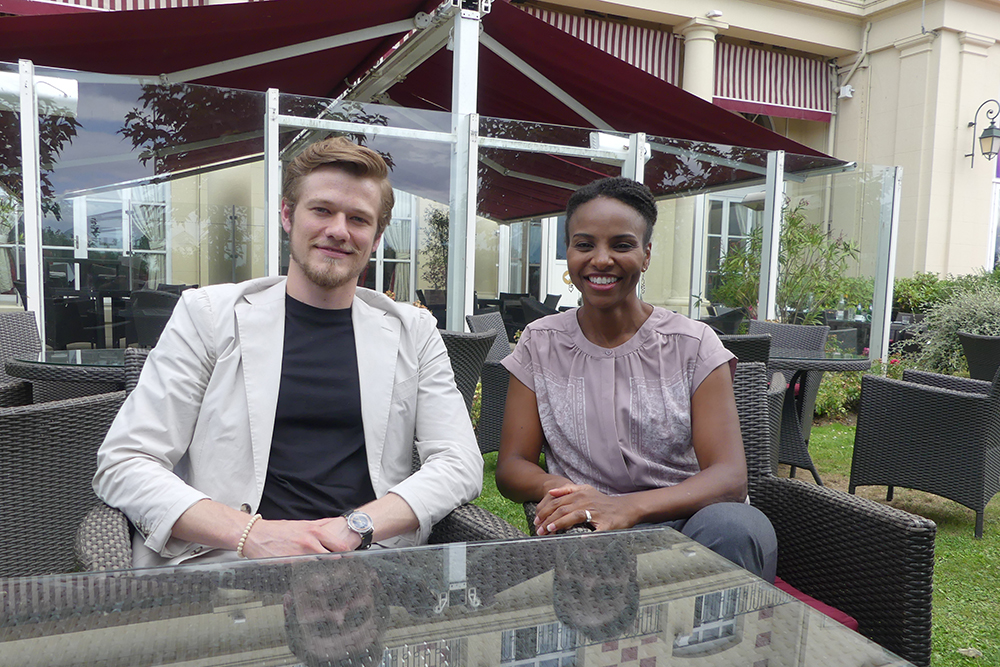
Q : Have you met Bob Zellner and can you talk a little about that ?
Sharonne Lainer : i should go first because you had more time with Bob. He was on set for one of the days that I was there which was amazing because like i said i wasn't there that many days but he was there and i remember like when I first saw him sitting down i was like should i go talk to him and what i came to find out was he's a very cool just relaxed kind of guy you know and it's so funny because those cool relaxed people it's kind of like Rosa Parks they made such powerful bold statements and so yeah that's what i got out of yeah i'm meeting him
Lucas Till : that's the same for me because i was really nervous to play someone who was still alive and i was being told was going to be there and i was like not that I wanted to do the research but it was like while i'm working but it wasn't it wasn't that way at all he's super sweet and kind and nice and humble and of course you know these are the types of people like you do these big things.
Q : What can you tell us about your filming locations ?
Sharonne Lainer : we shot at some of the exact same places that these things happened so obviously it was like really moving. It just takes you to a whole another world you know as actors so often we have to envision our surroundings we might be in the studio and then if you look up there you know there's just black you know whatever green screen back there but in this case it was like right there so your mind did not have to try to make it real it was real and so that i think a lot of us had said it amped up our performances.
Lucas Till : I mean the brigade Baptist church was real the oh the train station i'm guessing something that would have happened there too there was several locations i always forget but the one that was real the Montgomery bus boycott riot which is now a museum and so it looks exactly the same as it did 60 years ago right i think at least and so a lot of those things happened that's where that happened that took place exactly where it happened.
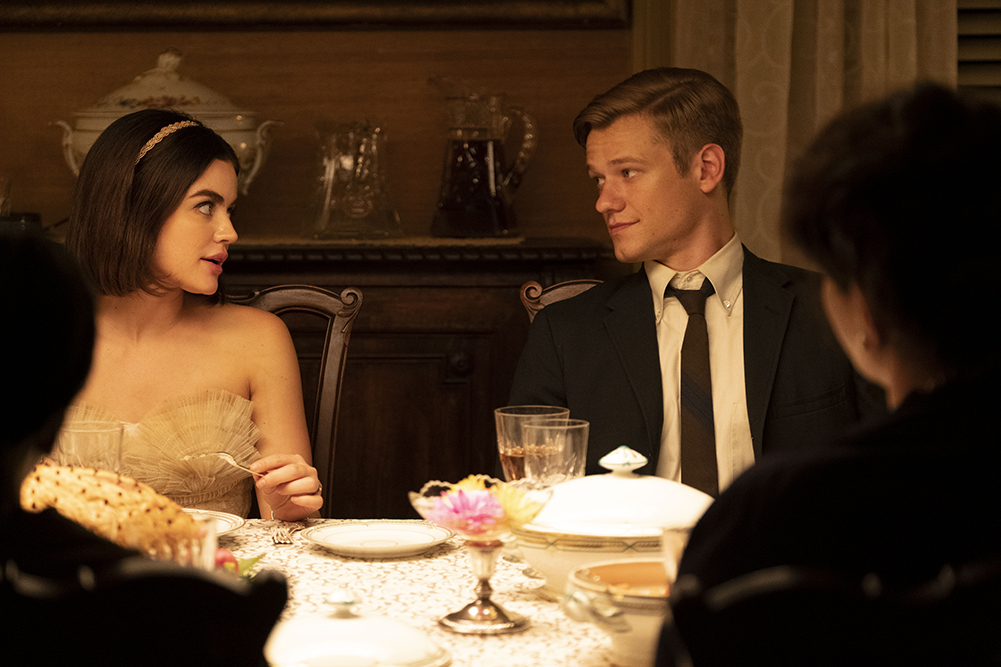
Q : What was the most difficult scene for you to shoot and why ?
Lucas Till : probably that dinner scene because of all the lines we had and we didn't have time and so Barry was like all right we're going to shoot too so we're going to steady cam this way we're going to mop this way but everyone had to have their lines perfectly timed which is what we do but sometimes it takes a minute to get there sorry to take this .
Sharonne Lainer : that would be it well i didn't have many scenes anyway but yes i do remember that one because it's longer but we just would shot like the whole thing through
Lucas Till : and it involves a lot of people.
Q : Can you talk a little about your collaboration with Lucy Hale and Brian Dennehy ?
Lucas Till : well there's a you know i could state the obvious about Brian Dennehy. I think it was his last if not one of his last films and it was a i mean it was an honor i mean that just the amount of people here that have said you know how starstruck they were watching the movie and i was like oh wow and it was crazy i mean going back to answer your earlier question the toughest scenes for me to shoot we're doing all the scenes with him i mean it sounds bad but what i mean by that is all the stuff that he had to say and you know i know we're acting but it's we're i mean we were on the campus of Tuskegee university which is a historically black university so it's like not it's not fun to be doing to the kinds of things that he was saying and doing those are probably the toughest scenes and then but then lucy i've known i've known just like socially for a long time so it was cool to get to do those you know we had to be pretty familiar so we had to and it was fun it was nice to finally get to work with it
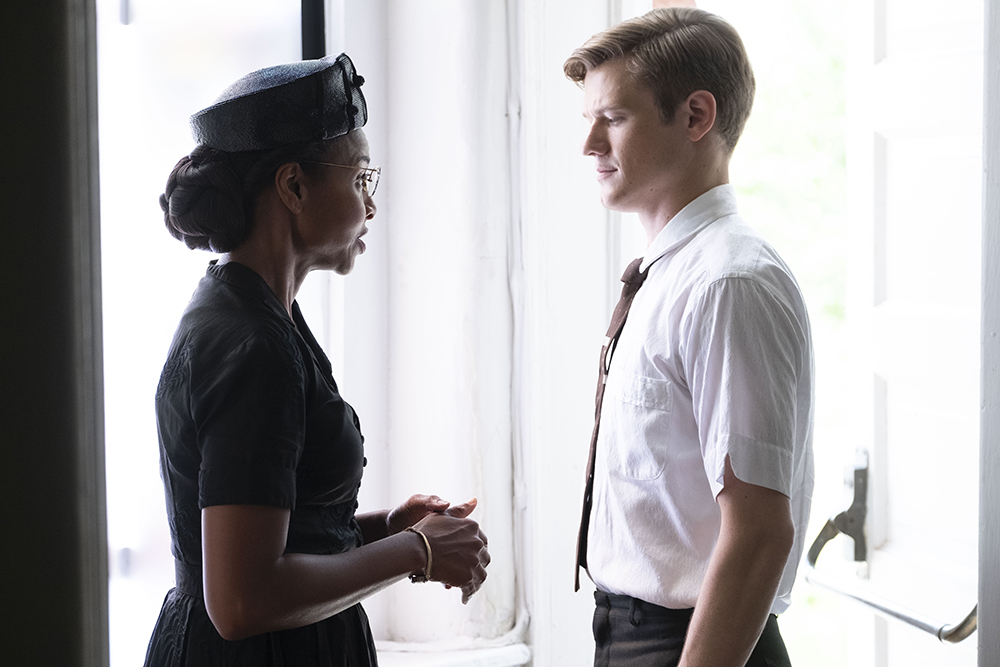
Q : Can you talk a little about how important is this film in the particular context in America ?
Sharonne Lainer : well some people would disagree with me on this so since the civil rights movement i believe that we have made some improvements some people were saying no we've made no improvement i would say that we have because i don't have to drink from a separate water fountain i don't have to sit at the back of the bus i don't have to enter into the building a separate way so we have made some strides however the question is it enough obviously not because we still have injustices going on yes everybody knows George Floyd several others that are all right have happened and are still continuing to happen that we need to continue to speak up for I mean we're just being killed because of the color of your skin and so it's like a different packaging so it's like okay back in the 60s and before and even slavery days you know you were treated you know certain ways you know because of the color of your skin but then the package just kind of changed you know over years and so now we're at this point 2021 it's still there but the packaging is you know they just try to do it more undercover so it's horrible but like i said we have made progress but we need to make more and change can and will continue to happen
Lucas Till : and it's also important and i think it's so great that you said that because to say that nothing has been done is to minimize the sacrifice of so many people even though this movie is about but you're also very right in saying that there's a lot that needs to happen if you think about what are we talking about in this movie which is well i mean one person perversely who gets shot for trying to register to vote. I mean we're talking about voters registration right now in America and or suppressing a voter rights and police brutality yeah and it's and it's happening right and we shot that before George Floyd was murdered and then of course it came around and sometimes i say it's a surprise but it really shouldn't be a surprise news media you know it's just not covered all the time regularly.
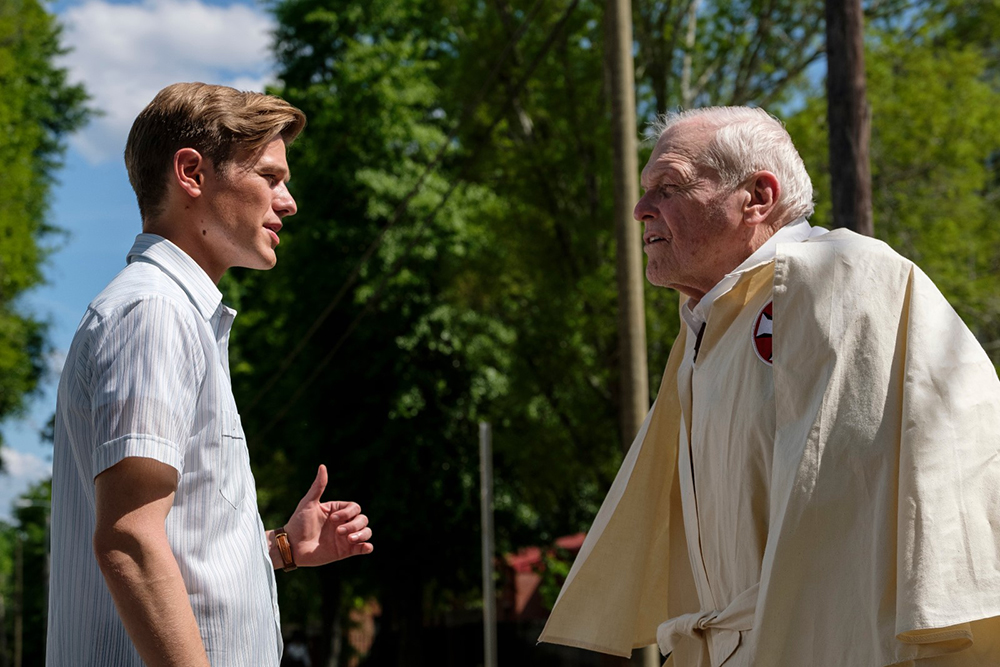
Q : Son of the South was very well received yesterday at the American Film Festival in Deauville. Did you expect such a good reception in France ?
Sharonne Lainer : I didn’t. I was really surprised first of all at the turnout. I was like wow people are like really here and really supporting the thing so thank you Deauville for that was amazing in itself just to pack out that theater like that and I know it seats like 1400 people and it was pretty packed out so that was amazing and then just in general like french, the french you guys have been so welcoming i know you guys have done Europe I mean Germany as well very good things but this is amazing it's amazing and it speaks volumes to the film because it's a universal story so the fact that it touches it gets touching people overseas it's just absolutely lovely mind blowing to me but my night might not be mind blowing to other people.
Lucas Till : it was. I think for me same because I just i mean when we were doing the movie we there was points where i didn't think we were going to finish and just and to know what people have done in the past and see their story be told in this and you know the freedom riders 60th anniversary was just a couple of months ago so to see this you know 60 years in the making just pieces of this story that Bob is involved in and then also to know that Bob has been working on this book for however many years Barry's been trying to get this one you made for Tim known Bob for 20 30 years and i thought it wasn't even gonna get made in my small role and then it is here and now you see a almost packed house in another in another country.
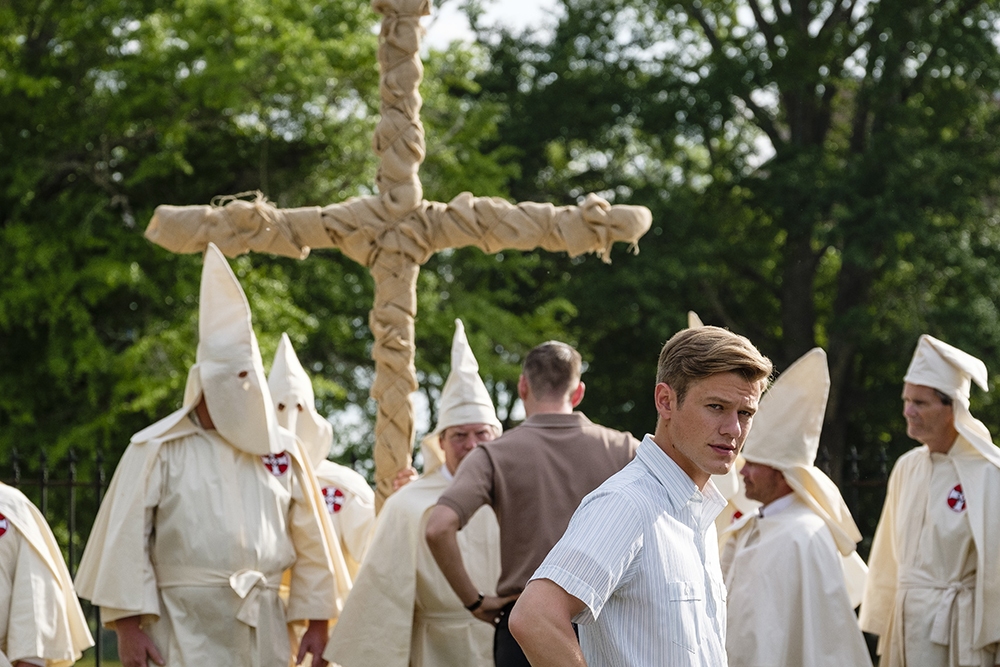
Q : Which are your currents projects ?
Sharonne Lainer : i have a film called Pulled From darkness that will release very soon and it's about human trafficking and based on the true stories. i play the main character the one that was human trafficked i play her nurse and basically help her to come out of the situation and there's a lot of faith involved in that where she leans on god to come out of it it's going to be super powerful directed by Emmy award director his name is George Johnson so that'll release soon
Lucas Till : i am right now fun unemployed meaning by choice not really but i have a project but it's we shot a pilot and it could be great but it's an actress superstition I don't want to talk about it before full picked up. That's different.
Synopsis :
Montgomery, Alabama. A grandson of a Ku Klux Klan member, influenced by the thinking of the Reverend Martin Luther King Jr. and Rosa Parks, became involved in the fight for civil rights in the United States in 1961.
Son of the South (Un fils du Sud)
Written and directed by Barry Alexander Brown
Produced by Colin Bates, Bill Black, Eve Pomerance & Spike Lee
From the Bob Zellner’s book The Wrong Side of Murder Creek
Starring Lucas Till, Lucy Hale, Lex Scott Davis, Julia Ormond, Brian Dennehy, Cedric the Entertainer, Sharonne Lanier, Chaka Forman, Ludi Lin
Music by Steven Argila
Cinematography : John Rosario
Edited by Barry Alexander Brown
Production companies : Lucidity Entertainment, Major Motion Pictures, River Bend Pictures, El Ride Productions, SSS Film Capital
Distributed by Star Invest Films France (France)
Release date : December 1, 2021 (France)
Running time : 106 minutes
Photos and Video : Boris Colletier / Mulderville

